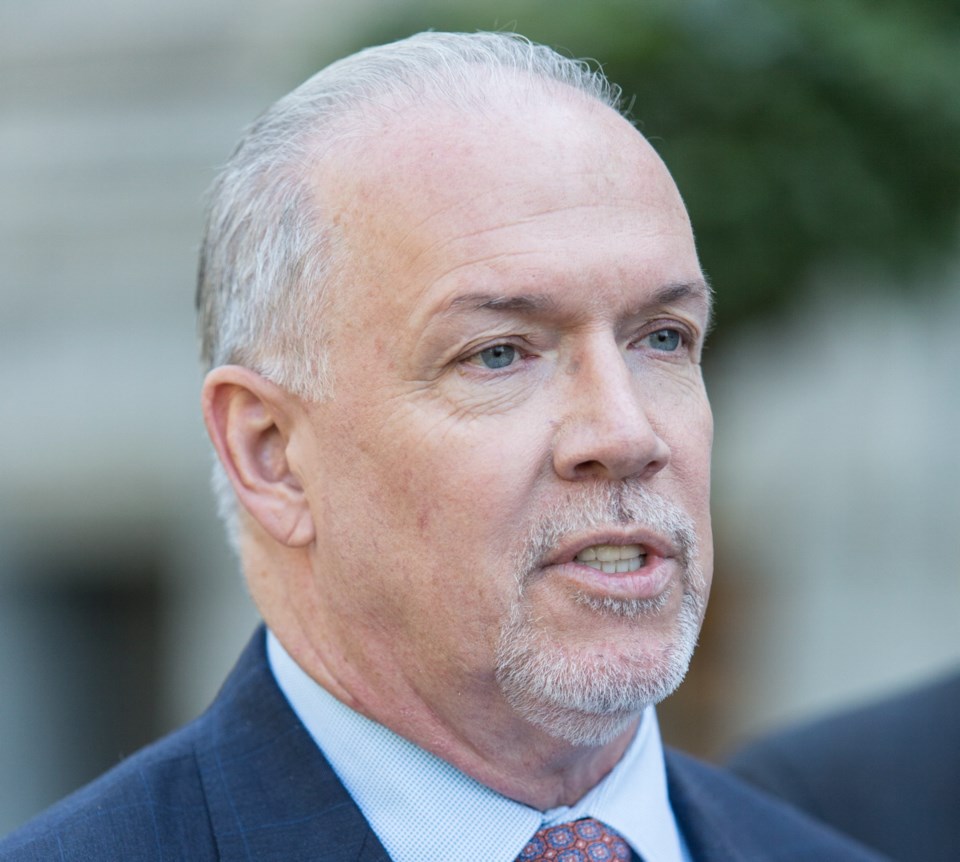B.C.’s NDP government is bringing back the province’s human rights commission, scuttled by the previous Liberal regime in 2002 in favour of a complaint-driven tribunal.
Premier John Horgan said B.C. is the only province without a commission that can take proactive steps to address systemic inequalities and prevent discrimination based on race, religion, sexual orientation or gender identity.
“We have to ensure that if we allow intolerance to rear its head, we together have to stand and push it back down again,” Horgan said Friday, speaking in Vancouver’s gay-friendly West End neighbourhood, two days before the city’s Pride parade.
“One critical element to make sure we do that is establishing again in British Columbia, like every other province in the country, a human rights commission.”
Asked whether he thought intolerance was on the rise in B.C., Horgan said incidents have been brought to his attention over the past two years of systemic hate and racism toward ethnic and religious groups. He declined to elaborate.
Attorney General David Eby said the current human rights tribunal has done a good job of making sure there is a place where people can have their disputes heard and resolved.
“However, that model relies on people taking the initiative and having the ability to go file a claim and wait the long period of time it takes to have a decision rendered and then to enforce it,” he said. “We need a commission with the power to do more — to educate about human rights, to prevent discrimination from taking place and to support people in addressing systemic discrimination.”
Eby said he has asked parliamentary secretary Ravi Kahlon to lead a public consultation process that will include both online and face-to-face meetings with B.C. residents, stakeholders and human rights experts.
The consultation process will start in September, with legislation for the creation of the commission expected next year.
Human rights commissions are typically arms-length agencies of the government that promote and enforce human rights and engage in education, policy development, public inquiries, litigation and research.
For example, the Ontario Human Rights Commission published a policy position last March on sexualized dress codes in the workplace that advises both employers and employees of their obligations and rights.
Morgane Oger, a transgender-rights advocate who ran for the provincial NDP in a Vancouver-area riding, said she’s involved in three human-rights cases, including one challenging the requirement for gender to be specified on birth certificates.
“That’s a daunting task. It’s extremely intimidating. I’ve helped people who have gone to the human rights tribunal by themselves and they’re terrified, and they have no idea what they’re getting into,” she said.
Oger said she advises people to expect that they will spend about $15,000 a day on lawyer’s fees and tribunal hearings can last three to five days. Preventing discrimination before it happens is far less expensive, she said.
“If you have to recall all of the cars after they’ve been on the road, it’s way [more costly] than putting up your hand and fixing the drawing at design time.”
Josh Paterson, executive director of the B.C. Civil Liberties Association, said that in the past, complainants could have their case heard by the tribunal only if the commission decided to take it on. He said he didn’t expect the government to return to that model.
In Ontario, complainants can go directly to a tribunal, and there is also a commission to do the proactive work, he said.
Paterson said he hoped the commission would have a strong educational function, which would be helpful for the public as well as businesses and landlords.
“It’s been a huge gap that B.C. hasn’t had a human rights commission all this time. There’s been no government agency tasked with education or promoting anti-discrimination, and that’s really vital.”



